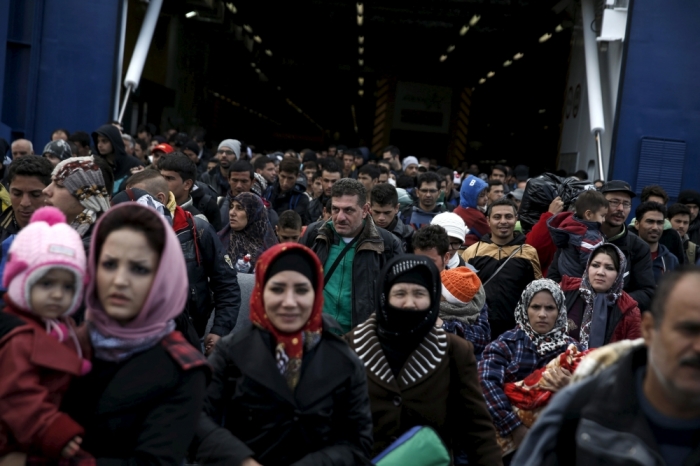DesiringGod Columnist on US Refugee Debate: How to Think as Christians, Not the Gov't

Amid the debate in the U.S. about accepting Syrian refugees, David Crabb, co-founder of The Gospel Fund, writes in an article for the desiringGod website that concerns over America's safety should be raised by the government, but Christians should look at God's heart for those who are suffering and outreach possibilities.
The key question in the debate seems to be this: "In light of terror attacks worldwide, is bringing 10,000 refugees from the Middle East really a safe decision?" writes Crabb, referring to President Obama's direction to his administration in September to accept at least 10,000 more Syrian refugees beginning Oct. 1.
"'Is it safe?' sounds like a question a government would ask. And it should ask; a government should seek to protect its people. But Christians ask, 'What is God up to?'" he adds.
There are four million refugees who have left their country during the course of the Syrian Civil War, and there are an additional 6.5 million internally displaced people within that country. After Obama's direction on accepting refugees, Secretary of State John Kerry announced that the United States would significantly increase the number of total refugees it accepts each year, so that the total would be at least 100,000 by 2017.
However, after the Nov. 13 attacks in Paris, whose responsibility was claimed by the Islamic State terror group, also known as ISIS or ISIL, and which killed at least 130 people, the House of Representatives overwhelmingly passed a Republican-backed legislation to suspend Obama's plan to accept 10,000 Syrian refugees.
"What if, through the senseless evil of civil war, God was bringing unreached people groups to our cities?" Crabb asks. "What if, through great tragedy, God was bringing about the triumph of the gospel?"
As Christians, "we may disagree about what's best for America to do in this situation," but "we also recognize that this is not ultimately as important as the gospel opportunity represented in the refugee crisis," the author adds.
"God cares about these refugees suffering, and so should we," he writes, saying that accepting refugees is an opportunity for us to "do justice and righteousness, and deliver from the hand of the oppressor him who has been robbed. And do no wrong or violence to the resident alien, the fatherless, and the widow," referring to Jeremiah 22:3.
God cares most particularly about eternal suffering, and so should we, Crabb adds. "God has blessed us so that his 'way may be known on earth, [his] saving power among all nations,'" he explains quoting Psalm 67:2. "The refugee crisis is an opportunity for the nations — even Syrian, Sunni Muslims from eighteen unreached people groups — to sing for joy (Psalm 67:4)."
He concludes the article with three advices.
One, "rather than thinking primarily of our own safety or comfort, let's ask what gospel movements may be possible through our lives and churches if God allows it," he writes.
"One of the things that hinders Christian witness most is simply that the primary voice speaking in our heads, influencing our thoughts, and determining our behavior is not the Bible, but media pundits," he cautions, sharing his second advice. "What would be our perspective on the refugee crisis if the Bible, and not our favorite news channel, was guiding our thoughts and directing our behavior?"
Three, "pray that the knowledge of the gospel will come to many unreached people groups for the first time as a result of this refugee crisis," he urges.





























